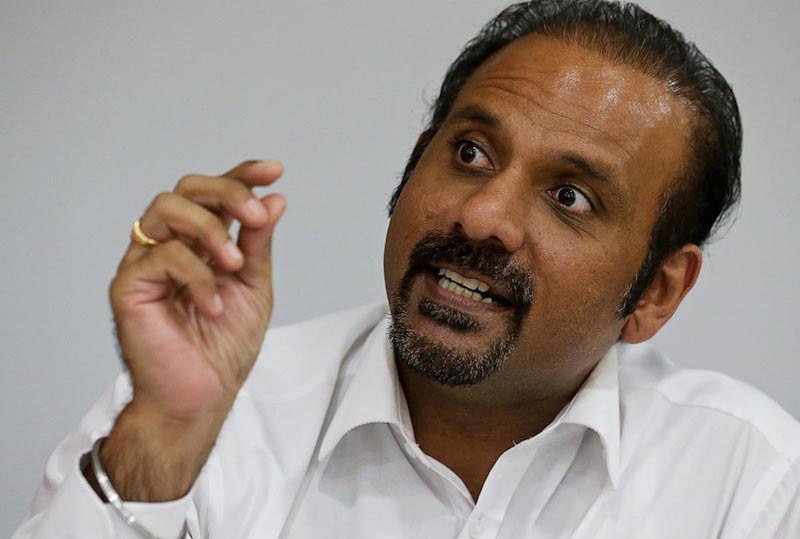KUALA LUMPUR, Jan 21 — Lawyer Abdul Aziz Abdul Rahman was wrong to suggest that the Sedition Act is a law enacted under Article 10(4) of the Constitution and that it is seditious to call for its repeal, Bukit Gelugor MP Ramkarpal Singh said today.
Ramkarpal said Abdul Aziz’s remark was disturbing and could create a fear of engaging in public discourse as to whether the said legislation is still relevant in Malaysia Baharu.
“Aziz’s view can lead to a fear of speaking up on matters which, although sensitive, are nonetheless justified.
“Surely, this is exactly the sort of stifling of freedom of speech that Malaysia Baharu has committed to eradicate,” he said in a statement today.
Abdul Aziz, who was involved in the amendment draft of the Sedition Act after the 1969 May riots had based his claim that the laws were enacted under Article 10(4) of the Federal Constitution.
Article 10(4) allows Parliament to pass laws prohibiting the questioning of the Rulers’ position, bumiputera special rights and national language on grounds of public security and such laws requires involvement from the Conference of Rulers.
Expressing agreement with fellow lawyer N. Surendran, Ramkarpal said the Sedition Act was enacted even before the Federal Constitution came into existence.
“As such, it is wrong to suggest that the Sedition Act is a law enacted under Article 10(4) of the Constitution.
“In this regard, it is also pertinent to note the wording of Article 63(4) of the Constitution which clearly suggests that the Sedition Act is distinct from offences enacted under Article 10(4) which indicates that the said Act does not come within the purview of Article 10(4),” he said.
The DAP National Legal Bureau chairman however said he wished not to go into details of the legality and accuracy of Abdul Aziz’s view as there have been sound arguments rebutting the same.
“However I do believe that there is a silver lining behind his view in that he has provided possibly the most compelling argument for the repeal of the Act to date by claiming that those who advocate repealing can be prosecuted.
“The Rakyat should not be subjected to such fear as this is certainly not what Malaysia Baru stands for,” he said.
Meanwhile Surendran also hit out at Abdul Aziz’s “outrageous defence” on the repealing of the Act, saying it was impossible as the Act enacted during the British colonial era.
“The constitution only came into existence existence nine years later in 1957. It is simply astonishing that Abdul Aziz overlooked this simple fact in his zeal to uphold the oppressive Sedition Act.
“Further if the Sedition Act was really enacted under a specific provision of the constitution such as Article 10(4), this would be reflected in the preamble to the Act.
“However, nowhere in the Sedition Act does it state that it is a law made under Article 10(4),” he said in a statement.
He said Article 63(4) of the Federal Constitution also categorises the Sedition Act as separate from laws passed under Article 10(4) which means the Act is an ordinary legislation which can be repealed by a simple majority in Parliament, and without the consent of the Conference of Rulers.
“Abdul Aziz’s claim that the Sedition Act is an ‘extraordinary’ piece of legislation does not have either a legal or historical basis. In fact, the Sedition Act is little more than a British penal ordinance carried over into independent Malaysia.
Far from being an ‘extraordinary’ law, it is actually an inferior colonial law that was never passed by our Parliament,” he said.
The Lawyers for Liberty advisor added that it was the height of absurdity for Abdul Aziz to claim that calling for the repeal of the Sedition Act is itself seditious, calling it a misguided and laughable move.
“Parliament has the power and duty to repeal or amend laws, hence it can never be seditious for citizens to call upon parliament or the government to abolish any law including the Sedition Act.
“We reiterate that the Act is an oppressive and undemocratic law which must be abolished at the next Parliament session in line with the promise made in the election manifesto.



















